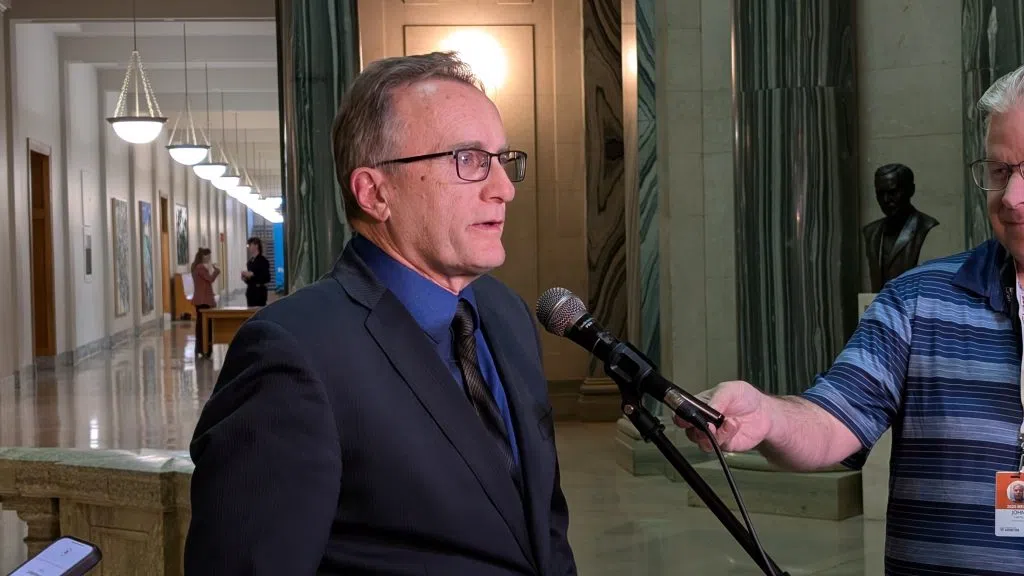One Regina senior has been forced to live off her pension, give up her cats, look into selling her car and might have to get a part-time job just to pay her rising rent, all while fighting cancer.
When Rita Racette first moved into her unit in 2022, she was paying a monthly rent of $1,329; now she pays $1,684.
A group of women, which Racette was unable to accompany because she was receiving cancer treatment, joined the Saskatchewan NDP on Monday to announce the party’s rent control bill.
Read more:
- Home builders worry speeding up new schools will make homes more costly
- Wildfires, tariffs and health care: Province expecting $427 million deficit
- First Nation calls for emergency response improvements after couple stranded on island
Linda Andrews spoke for the women and shared the stories of her fellow tenants who are struggling to pay rent.
“Rent has been steadily increasing, and so are my bills and medication, but my income is not,” Andrews read from a statement of another resident.
The ladies meet every week for coffee to socialize, but lately conversations have revolved around rent and affordability.
“The first year, our rent went up $70. The second year, it went up $160 a month, and this past lease $70, so there’s no consistency as to why,” Andrews said.
The Rent Control Act (Bill 608) introduced by the NDP, “would tie maximum rent increases to the Consumer Price Index, stopping big corporate landlords from increasing rents by unreasonable double-digit amounts every year,” it said in a statement.
The NDP said the bill follows months of consultation with landlords, organizations, home-buyers, industry experts, renters — who make up a total of 300,000 in the province — and non-profit organizations.
While in the past the Saskatchewan Party have said they won’t support the bill, NDP Leader Carla Beck said she wants to raise the voices of renters.
“We understand that the cost of living (and) affordability continue to top the No. 1 concern for people right across this province,” she said.
Beck said people are struggling as the average rent in Saskatchewan has risen for 40 months and increased 24 per cent in the last two years, which is the highest increase in Canada, according to data from Rentals.ca.
“They’re finding themselves using the food bank in record numbers. They’re finding themselves take on multiple jobs. They’re finding themselves without money to pay for the basics because of this,” she said.
Beck said the biggest offenders are corporate landlords — many of which are headquartered in Alberta and Ontario — and that the bill wouldn’t target “mom and pop” landlords.
“They’re coming in, they are jacking up rent, and they’re taking profits out of the province,” Beck said.

Finance Minister Jim Reiter said the devil is in the details when it comes to the NDP’s rent control bill. He said that while it might sound good on paper, incentivizing building more housing units is key. (Lisa Schick/980 CJME)
Sask. Party unlikely to support bill
Although Finance Minister Jim Reiter didn’t have a chance to review the bill on Monday, he said it was unlikely the Sask. Party would support it.
“It chases away investment,” he said.
He said the solution to higher rental rates is putting more units on the market so there’s more competition for renters.
“We’re not likely to support it,” he said.
When asked about building new units and how it’s not a quick solution, Reiter pointed to the Secondary Suite Incentive and the First-Time Home Buyers Act.
He said those two programs are working well for the province.
— with files from 980 CJME’s Lisa Schick
Read more:











